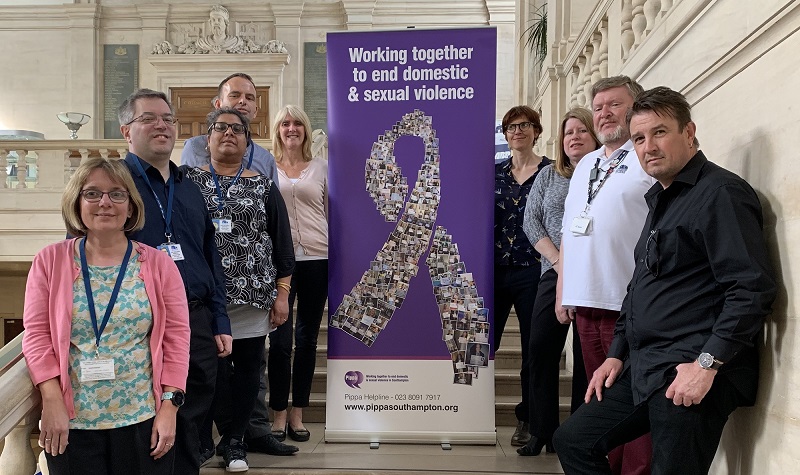Council makes a stand against domestic violence in Southampton
New support network aims to improve the safety of hundreds of residents

Staff from Southampton City Council are helping to recognise, respond and reduce instances of domestic abuse in the city by becoming Domestic Abuse Champions – a support network that aims to improve the safety of hundreds of Southampton residents.
Seventeen members of the council’s Housing Service will be undergoing specialist training so they can act as leads for domestic abuse cases (issues), advise and support colleagues on the management of individual cases, and ensure victims among Southampton’s 17,500 council homes have access to local resources and specialist domestic abuse support.
Evidence suggests that victims can turn to as many as five different agencies before they find appropriate help. By building a team of Domestic Abuse Champions, the council hopes to provide a reassuring single point of contact, particularly within a department that already has daily interactions and existing relationships with affected residents.
The formation of the Domestic Abuse Champions network is one of several commitments Southampton City Council is making in order to become an accredited member of the Domestic Abuse Housing Alliance (DAHA).
DAHA’s mission is to improve the housing sector’s response to domestic abuse through the introduction and adoption of an established set of standards.
According to DAHA:
- Housing providers are ideally placed to spot and respond to domestic abuse as a first point of contact
- The number one barrier to women leaving abusive situations, is housing
- Domestic abuse is one of the highest causes of homelessness among women
Domestic abuse can happen regardless of social group, class, age, race, disability or sexuality of the individuals involved. It is a pattern of behaviour used by abusers designed to establish and maintain power and control over another person.
While the advice to those in immediate danger continues to be to call 999, Housing Service staff can:
- Complete risk assessments together with the victim so that they are offered the most appropriate level of support
- Arrange additional security to victims’ homes, such as extra locks, bolts and fire-resistant letterboxes
- Explore options for temporary and/or permanent rehousing where it isn’t safe for victims to stay in their homes
- Collaborate with multi-agency colleagues to coordinate efforts and work more efficiently to reduce the risk to victims
Councillor Satvir Kaur, Cabinet Member for Housing and Culture, said: “As Southampton’s largest provider of social housing, the council has a responsibility for implementing robust safeguarding procedures wherever possible. Domestic abuse is a problem that, sadly, often goes unreported and undetected. I’m incredibly grateful, therefore, to these volunteers who are passionate about raising awareness of issues affecting many hundreds of Southampton residents and helping them find peace, security and safety in their lives.”


